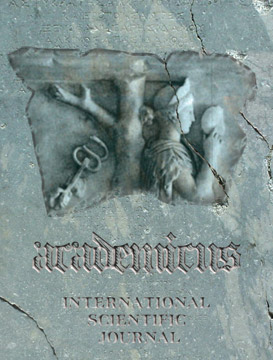Title:
Author(s):
Abstract:
In the philosophical inquiry adopted by logical empiricists, analysis of scientific language
becomes something similar to a metaphysical endeavor which is meant to establish
the bounds of sense, and this stance may be easily traced back to Wittgenstein’s
Tractatus Logico-Philosophicus. On the other hand, the analytic tradition transferred
this conception to the analysis of ordinary language, and this move, eventually, was
able to restore the confidence of many philosophers in their own work. After all they
were doing something important and worthwhile, that is to say, something no one
else was doing, since linguists are certainly concerned with language, but from quite
a different point of view.
At this point we may well ask ourselves: What is wrong with this kind of approach,
given the present crisis of the analytic tradition and the growing success of the
so-called postanalytic thought? At first sight it looks perfectly legitimate and, moreover,
it produced important results, as anybody can verify just reading the masterpieces
of contemporary analytic philosophy. To answer the question: What is wrong?, we
must first of all take into account language itself and check what it is meant to be
within the analytic tradition. This will give our question a clear answer. We have to
verify, furthermore, what kind of knowledge philosophy needs to be equipped with
if it wants to preserve its autonomy. The logical positivists clearly claimed in their
program that there is no synthetic a priori knowledge such as the one envisioned by
Immanuel Kant. There is, however, an analytic and a priori knowledge which is supplied
by mathematics and logic alone. Within this field, the techniques of contemporary
formal logic are exalted because they allow us to build artificial languages which - at
least theoretically - eliminate the ambiguities of everyday speech.
Keywords:
language; philosophy of language; metaphysics; ontology; epistemology; logical empiricism
Full Text PDF:
References:
View complete reference list, click
here
Digital Object Identifier DOI:
The article's content ©Academicus™ Language and Idealism
by
Prof.Dr. Michele Marsonet
is licensed under a Creative Commons
Attribution-NonCommercial 4.0 International License.
Presented:
October 2020
Included for Publishing:
December 2020
Published:
January 2021,
Volume 12,
Issue 23
Academicus International Scientific Journal is an Open Access Journal. This means that all content is freely available without charge to the user or his/her institution. Users are allowed to read, download, print, search, or link to the full texts of the articles in this journal without asking prior permission from the publisher or the author. This is in accordance with the BOAI definition of open access. Users are obliged to cite the source (Academicus International Scientific Journal) and the author, according to the international citation standards.
To learn more about the OA Policy followed by Academicus ISJ, read Journal Regulations
Academicus
International Scientific Journal
pISSN 2079-3715
eISSN 2309-1088
Address:
Sheshi i Flamurit, Rruga Muze
Al-9401 Vlorë, Albania
Tel: +355 68 60 60 555
info@academicus.edu.al
https://academicus.edu.al



 Scholar
Scholar
 Crossref
Crossref
